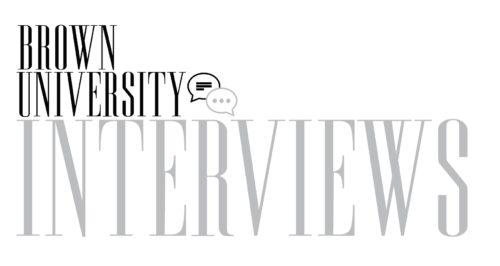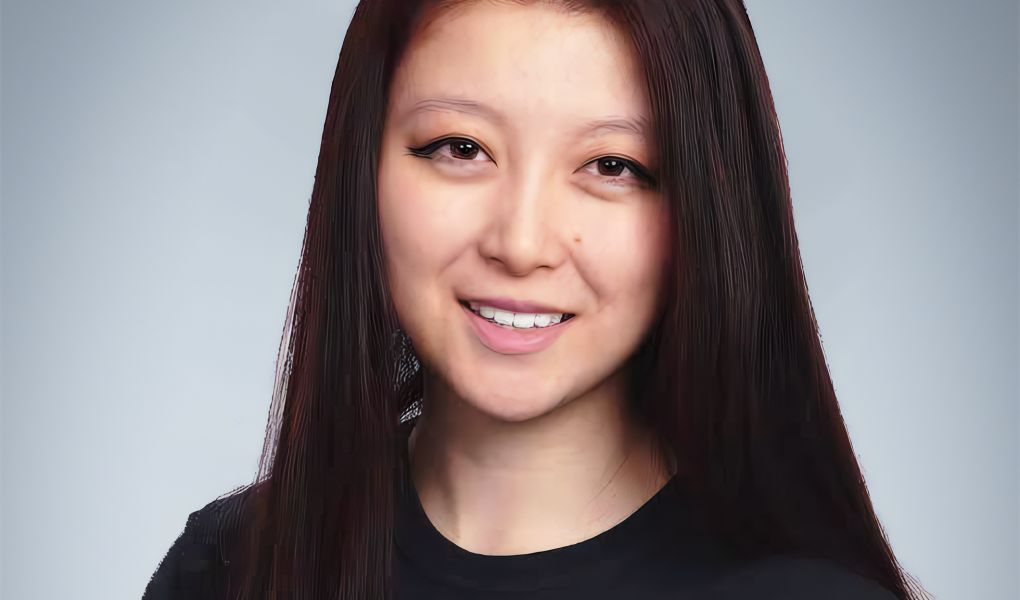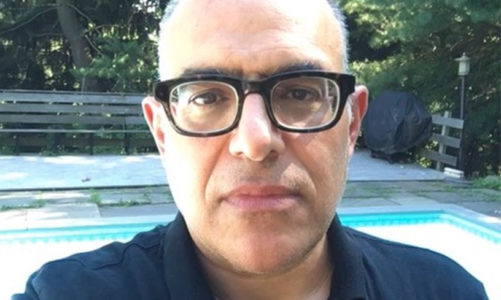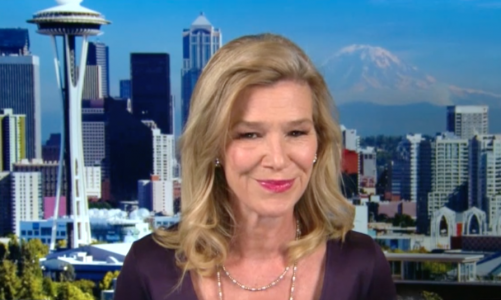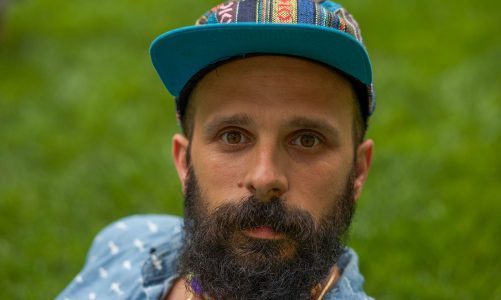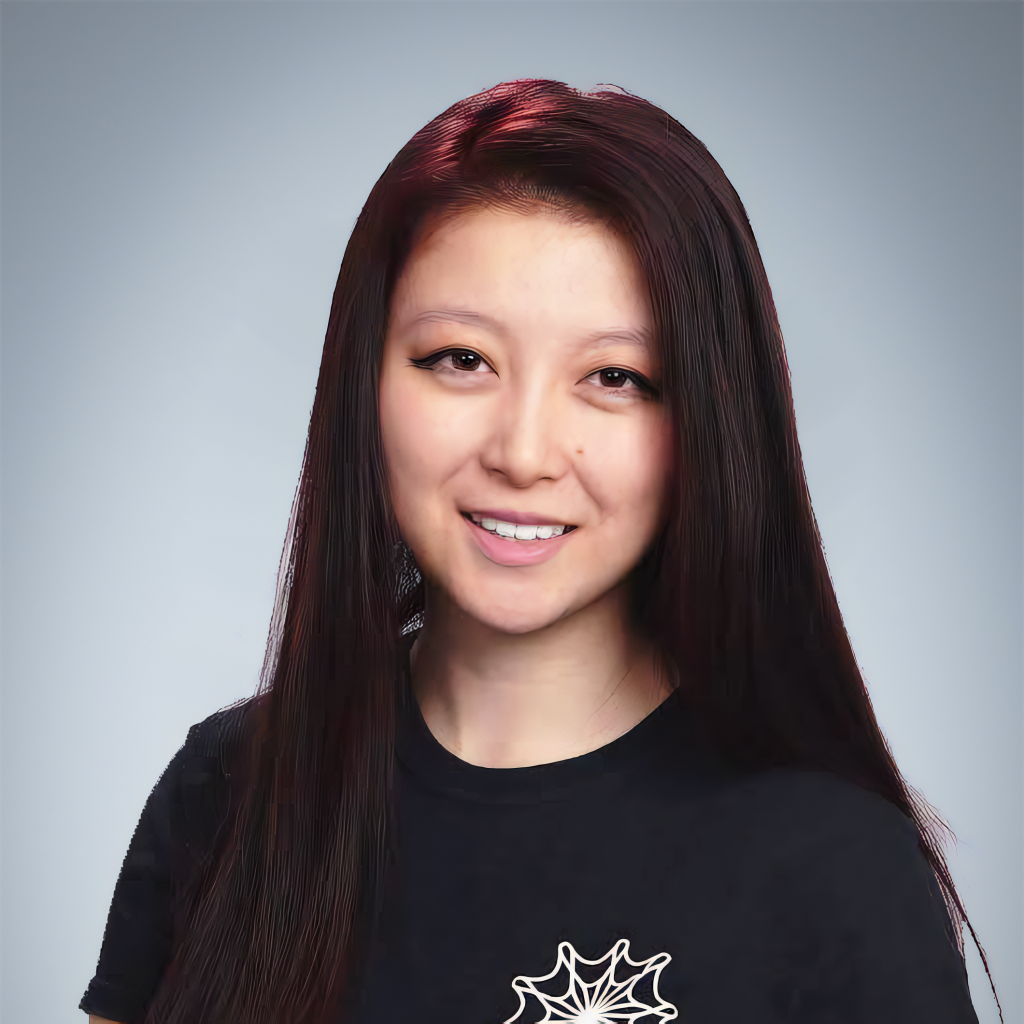
Christina Qi is the CEO of Databento and the co-founder of Domeyard — a high-frequency trading hedge fund. She started Domeyard while she was still in college, after she didn’t receive a return offer on Wall Street and decided to use her trading strategy to her own benefit. She’s a board member of organizations such as Forbes 30 under 30, 100 Women in Finance and Invest in Girls.
Dana Toneva: In an interview with “The Business of Business”, you share that you grew up in relative poverty. What was your opinion of “money” back then?
Christina Qi: When I was three years old, my family immigrated to America with a very limited budget. When you grow up poor, you don’t really realize it until you have certain experiences. My parents were very good about saving money, and they taught me how to do it well. For better or worse, this is still in me today and sometimes, it translates into what I do on a business level. Here is one funny example — we were trying to create jackets for our company, like the one I’m showing you right now. I made this jacket because online, one costs $120. My colleagues told me that’s a big waste of my time. [And] They’re right — one thing I didn’t manage to internalize is the idea that there’s something called “the time value of money.” When you’re poor, there’s no concept of “the time value of money”. The time I spent doing this, the jacket, is wasting the company more money at the end of the day. Another such example is the fact that for a long time in the early 2000s, we would drive looking for cheap gas. We could’ve got the gas, gone home and spent the hour with our family. So, I guess it could be a positive thing [that I still save up] – I look at menus and I can tell if something is expensive. It keeps me grounded, but I definitely still try my best to learn that my time is valuable, too.
At the same time, your parents always told you to do something good for your community and for the underprivileged. How did that influence your perspective while you were at MIT and later during your career?
When I told my professors that I want to go into finance, they told me I could have more influence and impact in another space, and use my skills to do good. Over the years, however, there is a cognitive dissonance emerging among students; there’s even an article written about it for the Harvard Crimson. According to surveys, most freshmen want to make an impact and very few want to go into finance. But, by the end of senior year, about 80% of students are in finance or consulting. Everyone wants to make a difference in the world, but they find job markets are very competitive. Realizing that, unfortunately, money is a necessary thing in our world today is a big factor of why people go into finance or consulting. Also, there is a big number of jobs available. I definitely felt that cognitive dissonance, and realized you have to be honest with yourself. What does it mean to truly do good? Does it mean feeding your family and taking care of yourself, or does it mean curing diseases?
At the Brown Entrepreneurship Conference this year, you mentioned that you had a particularly poor experience with finance before you graduated. Some of the women, as well as younger members of the team and some minorities weren’t treated very well. Why did you decide to go into finance initially, and why did you choose to start a hedge fund?
I went into finance because it was the easiest major at MIT. Initially, I wanted to major in biology, but I didn’t do very well there. I started my company because I didn’t do well on Wall Street. Failures and rejections throughout my time in college made me realize I didn’t really have a choice. My final project for one of my internships on Wall Street was to come up with a trading strategy. I worked so hard, but when I presented it, the team absolutely hated it. One of my other friends back at college told me to trade using my strategy just to get some closure. So I started trading, I started refining the way I traded, and eventually, ended up making money. I was able to pay off my loans by the time I graduated from college.
I think that’s one thing to keep in mind: having an open mind. I’m glad I wasn’t set on one career path, even though it definitely led to a lot of anxiety in college. At the same time, because I wasn’t set, I got the chance to really explore what I truly want to do.
There’s great survivorship bias in the startup world and there are many things people don’t talk about. Why did you decide to create a startup?
I started my company because I had energy and passion at the time to do it. To be honest, if I had looked at the startup failure rate and at the high frequency trading failure rate, I probably would have been too scared to go for it. Also, realizing that the previous company didn’t want my strategy was definitely a big driving factor. It felt more natural to just start a company and less exhausting than applying to other companies at the time.
How did you create a better culture than the “cutthroat” FinTech environment most companies have?
Culture-wise, we made a lot of mistakes early on. There’s a book called Principles by Ray Dalio containing principles that worked for Bridgewater, one of the biggest hedge funds in the world. I remember I wanted to do our own principles that are better. Long story short, almost all the principles we wrote turned out wrong in the end. I had to learn the hard way over time that people don’t stay because of free food, fancy titles, or unlimited vacations. People stay because their voice is being heard and their contributions are being valued— because they’re growing on the job.
The thing is that also, there’s no such thing as a perfect culture. We’re always learning, times are changing. Now, for example, we’re remote and our question is whether we have a good remote culture. With the pandemic, it’s very difficult for people to create value and to make the workers feel appreciated.
What kind of principles did you follow while you were trying to adapt to the COVID-19 pandemic?
The number one thing is fairness among our team. We decided to get rid of all unnecessary perks and focus on making sure everyone’s getting paid well and their environment is okay.
We set a budget and policies across the board so that we do not end up being unfair. Now, employees can just go into an online repository and immediately search up what they want to know about those policies. So far, it’s been the best way to do things remotely, but it’s a work in progress.
You teach Domeyard’s case study at Harvard Business School. Do you think that, in recent years, people have started to focus on different elements of the business model – for example, building sustainability, as opposed to maximizing profit?
The mentality has shifted a lot over the years. When Flash Boys first came out, I started getting more questions about the morality of my job rather than about the job itself. We got questions about what it means to make a lot of money for the societal framework we are in.
Over time, I think there was more fascination around topics like GME and Citadel, so I got a lot of questions about that, about what happened behind the scenes, and what impact all the various roles [in the industry] have on society.
People were curious about what happened with the GME situation. If you think about impact though, nothing’s really happened. Melvin Capitals lost some money, but they’re still going to retire as multimillionaires, if not billionaires. We’re still trading on Robinhood, they’re still making a lot of money, everything’s the same as it was. The only thing that could be different is that there’s a lot more interest in trading. My youngest brother, who’s a freshman in college, started trading. There’s so many situations where people who never would have traded suddenly start trading. It’s a really positive thing that people are trying to take control of their finances. However, on a regulatory level, Citadel is going to be around forever. The hedge funds are very much alive and everyone’s still doing very well.
You wrote a book called The Finance Snake. In the sneak peak, you mention that hedge fund managers “basically make billionaires even richer”. Why did you decide to put this as an opening sentence?
Many hedge funds invest in “social good”, for example, environmental research or social governance. But whose money are they investing? A lot of the time, it’s the money of billionaires. The number one dilemma I struggled with morally was that, at the end of the day, our business model was not helping people poorer than me. I was helping people enormously richer than me. We’re not allowed to accept money from poor people, we have to accept money from what’s called “the high net-worth individuals.” [So] I started wondering whether that’s how I want to spend the rest of my life, working for billionaires.
How would you define success?
Success is the number of hours you can play video games during the day without any consequences. This is not my quote, it’s a quote from one of my friends at college. It doesn’t have to be about video games. It’s the number of hours you can afford to do the thing you truly want to do during the day without suffering from external consequences. For me, this happens to be video games or board games, or hanging out with friends.
It’s not about how much money you make, even though not having to be in debt is a big thing.
It’s about realizing that, instead of saving a little bit of money on gas by driving all over town, you can spend an hour with the people you love.
What is one mistake you made during your entrepreneurial journey that you’re proud of?
I have so many mistakes which I had to learn from. I used to have a child’s mentality: for example, my professors, the industry leaders I interviewed — they were the adults in the room, and I was a kid. It took me many years to learn that everyone has value to bring, no matter how old or young, no matter where you are in your career. I’m not trying to leech off of professionals who are more experienced, but I have something to bring, too.
I am also glad for the many failures in life. In college, I tried my best in class, but to be honest, I got a lot of bad grades. They helped me realize what I truly want to do. They posed hurdles in life that made me get to where I want to be, and they taught me to have a little bit of trust that things will go okay because they’ll still lead you down another path.
What’s one advice you’d give young entrepreneurs?
Live the life that you want to live, not the life that others expect of you. I know that’s a very individualistic answer, because some people live in a collectivist culture. In this case, you live for the community that you have. However, I still think that you have to live the life that you want to live. That way, you can help your community while you’re living your genuine life, doing the job you want, and that might be completely different from your classmates. At MIT, my classmates go to work at Google, or Facebook, or Apple. A part of me felt the temptation to do that because they were doing it. There’s no such thing as one career path for everyone. You don’t need to be an entrepreneur in order to be happy or to succeed in life.
There are so many different career paths, and all of those are great. Everyone you’re around is trying to pursue different things, and it makes you wonder whether you need to do that too. You don’t really have to if it doesn’t bring you energy, and that’s okay.
*This interview has been edited for length and clarity.
